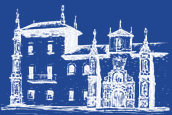Abstract
This article examines the social and economic underpinnings of creating a place for descendants of Basque immigrants by the use of the Basque Block in downtown Boise, Idaho. In the past, unlike other immigrant groups in the United States, Basques lacked the desire to assimilate into the U.S. and remained relatively invisible. Simultaneously, they created subtle ethnic communities and maintained transnational sociospatial ties with Basque Provinces in Europe. Today, these transnational ties are stronger, which has profoundly influenced the creation of the Basque Block. The Basques strive to maintain their heritage landscapes to retain their cultural identity and educate present and future generations about their unique legacy. Furthermore, the local community in Boise has recently marketed their heritage landscapes to attract tourists and bring attention to this “invisible” ethnic group. This article explores the challenges and opportunities brought on by the production of an ethnic heritage site.
DOI
https://doi.org/10.18122/B28987
Recommended Citation
Hill, Gretchen
(2014)
"Production of Heritage: The Basque Block in Boise, Idaho,"
BOGA: Basque Studies Consortium Journal: Vol. 1
:
Iss.
2
, Article 3.
https://doi.org/10.18122/B28987
Available at:
https://scholarworks.boisestate.edu/boga/vol1/iss2/3


About the Author
Gretchen Hill-Marino, a cultural and tourism geographer, has had a long-standing fascination with the diverse cultures and peoples of Spain. She first learned about the Basque culture while living in Reno, Nevada and studying abroad at the Universidad del País Vasco in addition to conducting her first research project in the Basque Country. Since 2007, she has studied the Basque culture in the American West on topics ranging from Basques’ attachment to place in Nevada, Basque expressions in the Great Basin, and Basque heritage tourism and identity politics in Boise, Idaho. She works at the University of Oregon as an Adviser and Program Coordinator, and continues to publish her works in scholarly journals. In addition, she teaches annual workshops at Boise State University to continue her desire to educate others about the Basque culture from a geographic perspective.
Education: M.A. Geography – University of Oregon, 2012 B.S. Geography, Minor: Environmental Studies – University of Nevada, Reno, 2009 Foreign Study – Universidad del País Vasco, 2007